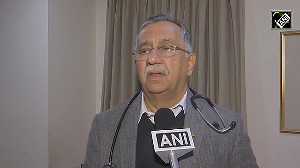Resist the temptation to react to every move of the market and remain disciplined with your investments till you reach your financial goal, advises Harshad Chetanwala, co-founder MyWealthGrowth.

After witnessing an eventful year, I thought of sharing the tenets of investing that I have learned and practiced, which is the approach I would suggest you to consider if you find merit in it.
1. Ensure you build your safety net (6 to 12 months mandatory expenses in bank/liquid fund)
Investors always have this question on top of their mind: 'Where do I begin?' The answer can be summarised in 3 steps:
Make a list of all your mandatory expenses for the last 6 months and compute an average monthly expense.
Multiply that number by 6 to 12 depending on your confidence in your future income. Higher the confidence, lesser the number and vice versa.
Keep that amount in a savings bank account or liquid funds. Don't touch it come what may as this is the safety pool.
The one thing that 2020 has taught us is the importance of a contingency fund.
2. Know and invest as per your risk profile
Risk profile reveals how much risk a person can tolerate.
Knowing your risk profile will always work in your interest.
The investments done by your relatives/friends/colleagues may not necessarily be the best option for you.
Equally, the latest fashion in investing may not necessarily suit your needs.
If you have a moderate or high risk profile, you can consider having a higher allocation in return generating investment with additional risk.
Alternatively, if you get uncomfortable when you see a swing in the returns or feel safe when the returns are gradual and stable, then you better have limited allocation in assets with high risk.
3. Diversify across asset classes
Each asset class has a purpose in your overall investment portfolio and the potential to work for you.
The key is to align your allocation in these asset classes according to your future needs.
Irrespective of what age group you belong to, you need to use different asset classes to take care of your near term and long term goals.
The diversification across asset classes is also dependent on your risk appetite which hs been discussed above.
4. Try to retain your asset allocation
Asset allocation is the result of overall investment across different asset classes like Equities, Debt, Bank, Money Market, Gold, Real Estate, etc for all financial goals.
When the stockmarkets are rising, it is tempting to put every extra rupee saved into the markets to earn maximum returns.
When the markets are down, the temptation to switch every rupee to another asset class is very high.
The key is to not get tempted and remain properly diversified across asset classes.
One of the best ways to rebalance your allocation is to invest subsequent investments in the asset class that has gotten reduced instead of withdrawing from the asset class that has performed better.
5. Don't get swayed by market movements
It is the nature of the market not to move in a straight line, so getting used to the volatility in the market will help you in the long run.
One of the best ways to do that is not to check the market level every day and get excited or nervous, depending on where the markets are going.
Equities are for the long term; invest your money in good diversified equity funds and have the patience to watch your money grow.
Good times and bad times are part of the market; it is important to ride it confidently.
6. Look at the performance across cycles and not just short term
When we decide to invest in any instrument, the easiest thing to do is to sort performance and see the top performing option.
Performance is, of course, important before investing -- but not just near term or short term performance.
Short term performance may not always give the right picture. The real test of any investment is when the market is not in its favour and how it performs during good and difficult cycles.
7. Continue your SIPs until you reach your goal
SIPs are one of the most preferred routes of investment.
Many have the habit to stop SIPs looking at short term underperformance or when they see market correction.
The disciplined investment approach through SIPs is to ensure that you do not get swayed by market movements and stay invested.
If you stop your SIPs midway, you will not be able to achieve your financial goals.
So, no matter how the markets are doing, do not stop your SIPs unless you are close to your financial goal.
8. Withdraw only if you are nearing your goal or need the money
The best way to build your wealth is to have a proper plan for your financial needs.
We do not leave our house without a destination and we rest only once we reach the desired destination. The same goes with our investments.
We should plan to withdraw once we are nearing our objective or if there is some emergency.
One of the best ways to withdraw is to do it gradually when you are close to your goal. This way you will be able to de-risk your goal oriented investment as well.
9. Always have some allocation in equities
No matter what age group or risk profile you belong to, you need to have some allocation in equities.
Equity is the only asset class that has the potential to generate higher returns in your portfolio.
Most of the other investment instruments can also generate returns for you, but when you look at real returns considering inflation, an allocation in equities will help you to improve inflation adjusted returns in your portfolio.
The allocation in equities can differ based on comfort and needs, but some allocation is a must.
10. Stick to basics and review investments every 6 months
The underlying theme is very simple -- resist the temptation to react to every move of the market and remain disciplined with your investments till you reach your financial goal.
Having said that, it doesn't mean that once you invest you simply forget about it. Review your investments every six months or in the case of a major market event to see if everything is on track, and if corrective action is needed.
These tips may help you plan your investments, save and grow your money for maximum returns.
Harshad Chetanwala is a certified financial planner and co-founder MyWealthGrowth, an online investment and research platform.











 © 2025 Rediff.com -
© 2025 Rediff.com -